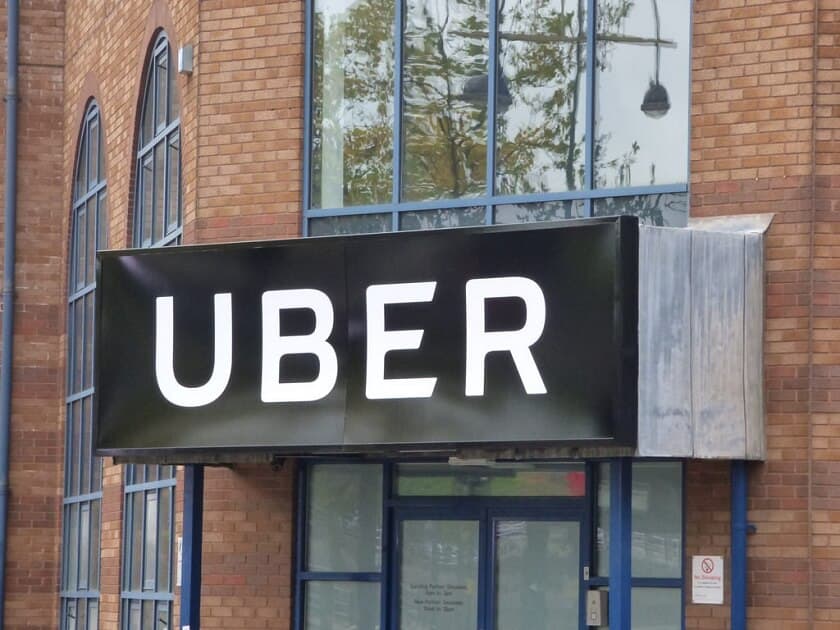Uber CEO Dara Khosrowshahi, in a wide-ranging interview to New York Times, talked of his taking over Uber during tumultuous times, the classification of Uber drivers as contractors, the Pandemic effect on the company and how CEOs are grossly overpaid.
“I think if you define fairness by ‘fair market value,’ then CEOs are paid fairly,” he said. “I think if you define fairness by how you think society should value people, then I think CEOs are paid too much. You could put me in that group.”
According to a Times report, eight CEOs of big companies, including some tech giants, raked in over $100 million in salaries in 2020. In comparison, Khosrowshahi’s compensation seems very little. He himself made around $12 million in 2020 and more than $42 million in 2019, when you include stock bonuses.

He said the current system that determines executive compensation – leaning on compensation consultants – leads to inflated packages.
“Every single comp committee wants to pay their CEO at the 60th or 75th percentile, because no one ever wants an average CEO, God help us,” he added.
He waived part of his $1 million base salary amid pandemic-driven layoffs at Uber. That’s a 72% cut from 2019, when he earned more than $42 million.
Alex Karp, Palantir CEO, was paid a humungous $1.1 billion for his services. DoorDash founder Tony Xu made $414 million. OpenDoor’s Eric Wu $370 million. All three firms also went public in 2020, where their top executives were awarded stocks.
CEO pay at public companies jumped more than 14% in 2020 as stocks rallied, according to The Times. For every dollar that a median employee was paid in the company, the head honcho took home $274.
Khosrowshahi earned 123 times the median Uber-employee pay.
In the interview, Khosrowshahi agreed that capitalism was skewed towards benefitting the capital maker. “Our system is called capitalism. It’s designed to optimize for long-term growth of capital. When people wonder, ‘Well, are capital owners advantaged over labor?’ it ain’t called laborism.”
Talking of the recent backlash against monopolistic tendencies of the Silicon Valley tech giants and the moral responsibility of being huge influencers, he said, “I think, just like Uber, some of them grew up too fast and some of them didn’t take responsibility for their power and I think now they’re being called to reckon, and I think it’ll ultimately result in a better, more balanced society going forward,” he said. “My hope is, it doesn’t destroy what we built.”
Elaborating on how the Uber ride business had gone down almost 85 percent in some places due to the pandemic, he said that the concentration on Uber Eats has helped. He saw the future of Uber as a company that delivers anything and everything. “We’ll keep working on go-and-get. Anywhere you want to go, anything you want to get, however you want to get it, we’ll be there for you.”
Khosrowshahi took over the company when it was going through the toxic culture scandal of Travis Kalanick. The process was not easy. The Kalanick crowd did not make it easy on “the math guy,” as some call him. There were two camps—Dara and Travis people. There were concerns that he would not be a big mover and thinker like Travis.
In his 2019 book, “Super Pumped: The Battle for Uber”, the New York Times reporter Mike Isaac wrote: “For some, there remains a lingering, persistent concern: Is Uber under Dara Khosrowshahi still going to swing for the fences? Or has Uber lost its appetite for moonshots and world domination — the alluring, Travis-like quests that attracted them to the company in the first place?”
“My goal in life is not to build the most sexy company,” he said. “It is to build the best company.”
Recently, Khosrowshahi did a delivery run for Uber Eats in SanFrancisco.“I was nervous at first,” he said, adding that some of it was fun and some of it was rough. “I nearly got killed delivering near the baseball park. The Giants game was starting, and traffic was nuts. My hypothesis is that someone knew that I’m a Mets fan.”





